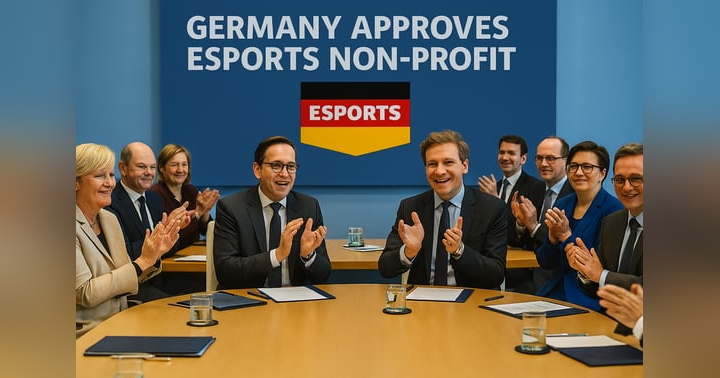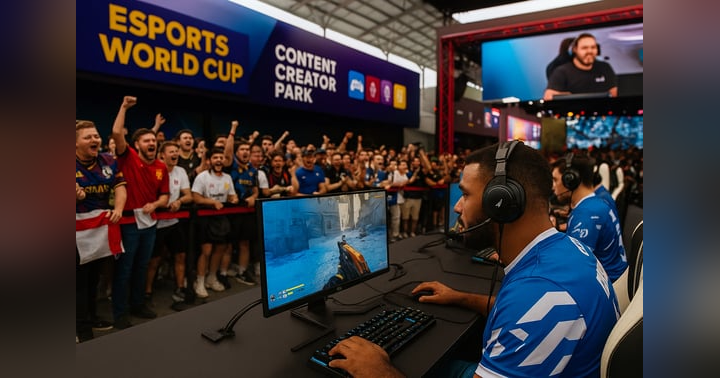Are Esports Professionals Real Athletes

Featured image: Microsoft Copilot
This is one of the questions that come up the most when the comparison between traditional sports and esports sparks a discussion. Mainly a quest to probe this aspect because of the physical activity (rigorousness, contact, hours of training, etc) involved. The amount of training however makes a strong case for esports professionals being considered as real athletes.
According to research by Professor Ingo Frobose, who has been studying esports athletes decades ago, he realized that the number of movements made on a keyboard and a mouse amounted to 400 per minute; movement that goes to show the asymmetricality of an individual who coordinates the use of both hands and various parts of the brain. These strain levels could not be matched by even tennis, a sport that requires a very high level of hand-eye coordination. Cortisol levels were also tested to measure the stress levels in esports players, and the amounts recorded compared it to the level of a race-car driver. These among other tests were conducted by scientists at the German Sports University in Cologne.
There was also another study conducted using participants at the Liga de Videojuegos Professional (LVP) during the 2018 – 2019 season. A total of about 46 elite male esports players completed a questionnaire on training habits, participation in competitions, injury history and other physical activities. The results indicated that professional esports players have similar characteristics with traditional sports players, on the aspects of performance in training, involvement in physical activities and injury risks. The differences between them that were identified were on supervision and injuries, with esports requiring low frequency of supervision from professionals and encountering low frequency of injuries as compared to traditional sports.
The study concluded that professional esports players should be treated as traditional athletes and that esports organizations adopt similar strategies to those used in traditional sports to manage and prevent injuries.
Takeaway for Coaches and Support Staff
Photo Credit: Microsoft Copilot
- Implement strategies such as load management and have proper warm-up routines for esports players, because they have similar physical and mental demands as traditional sports athletes.
- Have interdisciplinary teams of professionals (say exercise professionals) to design and oversee complementary training programs for esports players to help improve their performance.
- Have exercise professionals be actively involved in the designing and implementing of physical activity programs for esports players.
- Coaches and staff are to be vigilant in monitoring players when they show signs of discomfort or potential injuries, making them have rest periods to avoid overuse injuries (this occurs when a tissue is damaged due to repetitive demand over a period of time).
Should Esports Professionals Be Considered Real Athletes?
Photo Credit: Microsoft Copilot
From the points established above, we could say that indeed esports professionals can be considered as real athletes, with the case of the government of the United States recognizing gamers as athletes, and making them eligible for P1 visas – granting athletes to participate in esports events in the country.
This response to visa issuance from the White House happened in the year 2016 as a result of a Super Smash Bros player, William “Leffen” Hjelte was denied a P1 visa to play Smash Bros in the U.S. This sparked a petition call in the Smash Bros community, garnering widespread attention and had more than 100,000 signatures, meeting the requirement to guarantee a response from the White House.
Conclusion
Indeed there is a difference between watching ten men or women playing basketball and ten men or women playing Fortnite, if you are to consider fields of play, watchtime and playtime, and breaks, but the intensity, cheers and betting may share similarities between one another. It is only a matter of time with the global acceptance, and with the current revenues and expected growth in viewership, players and publicity, esports will for sure have its place marked as a professional sport, and the gamers as professional athletes.
Esports has helped create jobs for lots of people. Interested in knowing about the business side of esports? Listen to the Gamers Change Lives Podcast! We get experienced guests from all around the world featuring.
Written by Jeffrey Osei-Agyeman









